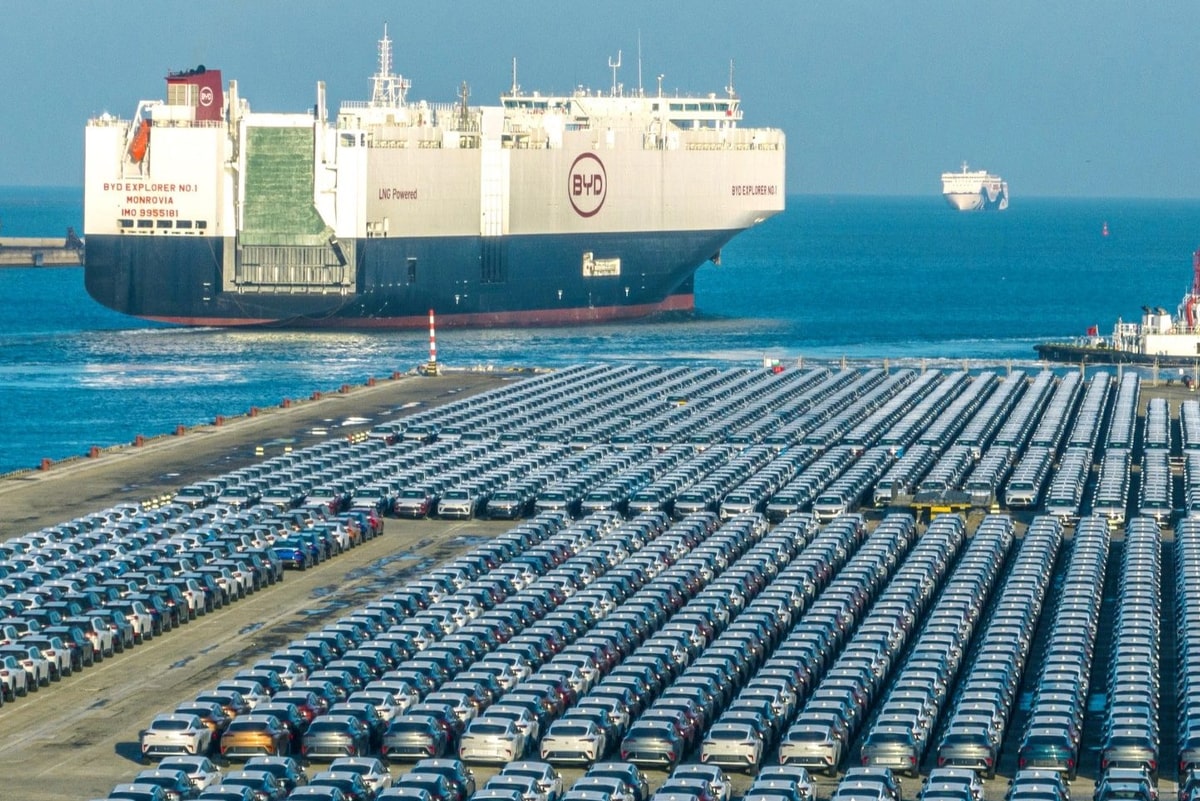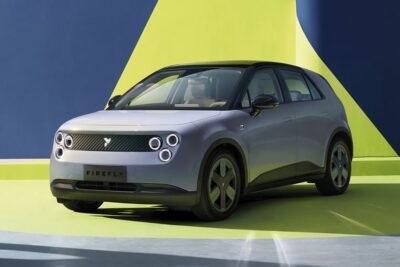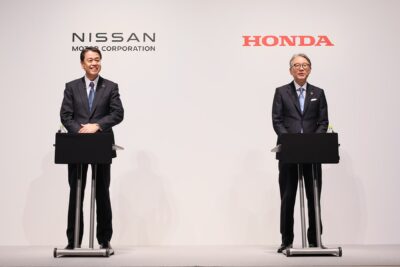EU Commission accuses BYD, SAIC and Geely of lack of cooperation
This was reported by Politico, citing letters sent by the EU Commission to the three car manufacturers at the end of April. The newspaper interprets this as a warning that extra tariffs could potentially be introduced for the trio from the summer. The “anti-subsidy investigation” – as it is officially known – launched by the EU in October 2023 is based on the European Commission’s assumption that Chinese electric vehicle importers benefit from excessive state subsidies in their home country, which distorts competition in Europe.
In the case of SAIC, the Commission had already criticised the lack of cooperation in a letter to the manufacturer’s lawyers in December. “Nevertheless, your client maintained its approach and continued to refuse access to some important information,” Politico quotes from the new letter to SAIC. And: “Your client has almost systematically submitted requests for extensions of time, although it has not used this additional time to provide the information requested by the Commission.”
The EU Commission complained to Geely that “none of the Geely Group’s financing companies responded to the Commission’s questionnaire”. Politico does not quote from the BYD letter. However, the tenor is always that information is being withheld and the EU Commission is therefore forced to resort to the concept of “facts available”. “In practice, this usually means that it has a free hand to impose higher tariffs on imported products,” Politico wrote.
The EU began recording imported electric cars from China that are eligible for tariffs at the beginning of March. This is seen as a preparatory measure for the potential introduction of tariffs. Although the anti-dumping investigation is not due to be concluded until November 2024, duties could apply retroactively from as early as July. EU Trade Commissioner Valdis Dombrovskis is even quoted by Politico as saying that the investigation is “making progress” and that he expects it to be finalised “before the summer break”. If tariffs are imposed, they will apply to all imports of electric vehicles from China, although the EU may vary the percentages for individual manufacturers.
Analysts from the Rhodium Group have concluded that Chinese manufacturers of electric cars are so competitive that they would still make a profit even if the EU were to impose import duties of up to 30 per cent. According to her assessment, tariffs of up to 50 per cent would be necessary to inflict serious pain on manufacturers.
EU Commission President Ursula von der Leyen outlined the problem in mid-September in the European Parliament in Strasbourg as follows: “Global markets are now flooded with cheaper electric cars. And their price is kept artificially low by huge state subsidies.” In the eyes of the EU Commission, this is distorting the local market. “And as we do not accept this from within, we do not accept it from outside either. That is why I can announce today that the Commission is launching an anti-subsidy investigation into electric vehicles from China. Europe is open to competition. Not for a race to the bottom,” von der Leyen continued at the time.
The announcement triggered an enormous response – above all, of course, from China itself: “This countervailing duty investigation from Europe is only based on subjective assumptions about so-called subsidies and threats of damage. It lacks sufficient evidence and is contrary to the relevant WTO rules, and China is very dissatisfied with it,” said a spokesperson for the Chinese Ministry of Commerce. The European side had asked China to hold consultations within a very short period of time, but had failed to provide “effective consultation documents”, which violated China’s rights and interests, the spokesperson said. The investigation measures planned by the EU were designed to protect its own industry in the name of “fair trade” and were in fact pure protectionism. This would disrupt and distort the global automotive industry and supply chains, including in the EU, and have a negative impact on economic and trade relations between China and the EU.
The EU, on the other hand, insists that the investigation will be conducted in accordance with strict legal procedures in line with EU and WTO rules. “All parties concerned, including the Chinese government and companies/exporters, will be able to submit their comments, evidence and arguments.” However, non-Chinese brands producing in China, such as Tesla, Renault and BMW, will not be affected by the investigation.





0 Comments